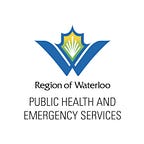Jenny and Johnny
Jenny and Johnny are a cute couple who love each other a lot. They’re friends to many in the community and are passionate advocates for those who have been rendered voiceless by stigma and circumstance. They have jobs, share an apartment, have a dog and love watching British Panel shows together on Netflix. They also use drugs. Almost daily. Jenny and Johnny have been taking drugs for years — but they shouldn’t be defined by it.
The story of how they met isn’t a typical “guy-meets-girl” story and highlights how overdose is a brutal part of the world that they live in.
“We had known each other for several years and would run into each other periodically. Then we started having mutual friends die from overdose and we kind of became ‘funeral buddies’” After a funeral in October of 2017, Johnny and Jenny became ‘official’.
Both have revived people from overdose using Naloxone and Jenny herself has experienced an overdose more than once, although she maintains that witnessing one is far worse than experiencing one.
“It’s completely different watching someone turn blue. You’re basically watching your friend die and turn into a corpse right before your eyes. Time goes by so slowly and seconds feel like hours. You feel like with every second passing they are slipping further and further away. And if I make a mistake — they might die.”
Johnny too has administered life-saving Naloxone “dozens if not over 100 times” and although he’s grateful that it’s available, he points out a much bigger problem:
“We’ve put incredibly delicate and traumatic situations into the hands of those who are least able to deal with it emotionally. There’s a reason people use drugs in the first place — to cope and get through the day. It’s how they survive. They are already walking a tightrope to just be able to make it through the day. To keep having this thrown at them is disastrous psychologically, not to mention that bringing people back over and over doesn’t actually help them improve their lives. It doesn’t help them get better at all. People need connections in order to move forward in life.”
It’s this belief in connection that led both Johnny and Jenny to get involved in their community through harm reduction and advocacy activities. Both work with the Sanguen Outreach Van — Johnny every week and Jenny a couple times of month.
Johnny believes in the importance of outreach– connecting with people, educating them about Naloxone, safer ways to use drugs and just talking to people.
“People trust me — they know there is no judgement on my part. I’m lucky that people are often willing to listen to a lecture about safer use because they know I have been there and that I’m genuinely concerned about them.”
Jenny helps out on the Van when she can but has also become a strong advocate in the community for safer options and services for people who use drugs.
“I wanted to give a voice to people who would actually use services like a Safe Injection Site (SIS). There didn’t seem to be anybody who could speak out as a current user. I wanted to show the opponents that people who use drugs are not monsters. We are just regular people. Somebody’s daughter, co-worker… that’s why I got involved.”
They also see SIS or CTS (Consumption and Treatment Services), as it’s currently called, as a way to reduce the burden of overdose on friends, family and other bystanders.
“People who use drugs — they didn’t sign up to be first responders. That’s why I think a CTS is so important because it will take the burden off of the people who are already dealing with their own trauma and put it on the professionals who have signed up to save people’s lives.”
There’s still a long way to go to solving the impacts of overdose and drug use in the community. Both Jenny and Johnny see the effects of stigma and have experienced it firsthand. They understand the barriers that stigma can create for people, making it challenging to get the help and support they need.
Jenny reflects about her own experience “I was afraid to ask for help because I didn’t want to be judged. I was afraid I’d lose my job. I took small steps and found people I was comfortable with, who wouldn’t judge me or force anything on me. They didn’t try to define what I needed. People who use drugs still need to feel like they are in charge of their own lives. As long as we keep telling people that they only matter if they change, we are not going to reach people and we’re not going to be able to help.”
For more information about safer drug us and prevention as well as available resources in the community: www.waterlooregiondrugstrategy.ca
For information about CTS visit: www.regionofwaterloo.ca/cts
